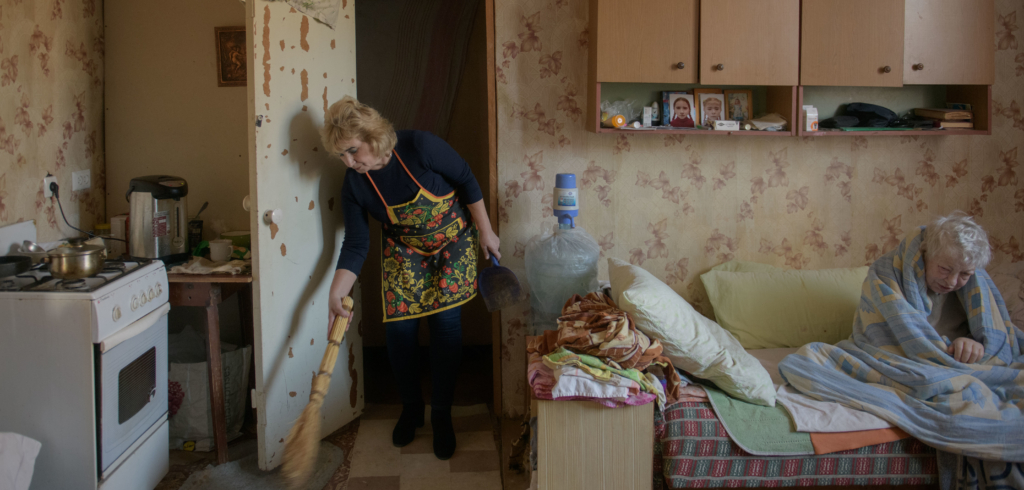Many temporary housing options are inaccessible to people with disabilities, and an overburdened care system leaves elderly people with few options other than institutions. Authorities and humanitarian organizations need to ensure a comprehensive response.
Displaced older people with disabilities in Ukraine are sometimes left with little choice but to move into residential institutions as the Russian aggression continues, both physically and financially unable to access adequate housing and care, Amnesty International said in a new report released today ahead of the International Day of Persons with Disabilities.
The report, “They Live in the Dark: Elderly Isolation and Inadequate Access to Housing Amid Russia’s Invasion of Ukraine,” documents how Russia’s full-scale invasion, which began in February 2022, placed unprecedented strain on Ukraine’s already overburdened care system, resulting in many older people, including those with disabilities, being separated from their families, leading to isolation and quarantine.
Russia’s indiscriminate attacks, many of which constitute war crimes, have forced millions of Ukrainian civilians to flee their homes. Ukraine has one of the world’s highest proportions of elderly people, with approximately 10 million people, or nearly a quarter of the country’s population of 41 million, being aged 60 or older as of February 2022.
“Even after evacuation to safer areas of Ukraine, older people, especially those with disabilities, continue to face great difficulties. “They are struggling to rebuild their lives with dignity and access adequate housing, support services and health care,” said Laura Mills, Amnesty International’s Ageing and Disability Researcher.
Russia’s aggression has put enormous strain on Ukraine’s already struggling social welfare system.
Laura Mills, Amnesty International Researcher on Ageing and Disability
“Russian aggression has placed an enormous strain on Ukraine’s already struggling social welfare system. The humanitarian response has been unable to meet this urgent need for accessible housing and supportive services, resulting in thousands of older people with disabilities being quarantined in institutions, far from their loved ones and isolated from their communities.”
“Institutions should not be considered the default option for displaced older people, including older people with disabilities. A number of simple changes can be made to temporary housing to ensure families do not get separated, such as installing ramps, and could significantly improve the quality of life for people who need mobility assistance.” Amnesty International interviewed 159 people for the report between May and September 2023, including 89 older people with disabilities and 22 social or health care workers. Researchers also visited 24 temporary housing sites.
Amnesty International believes that the quickest way to protect the rights of all Ukrainian civilians, including older people, is for Russia to end its war of aggression.
Inaccessible housing
Most displaced people in Ukraine live in rented accommodation, but extremely low pensions and high rents make this type of housing unaffordable for many elderly people.
As a result, older people often end up living in large numbers in makeshift shelters set up for displaced people in schools, dormitories and other public buildings.
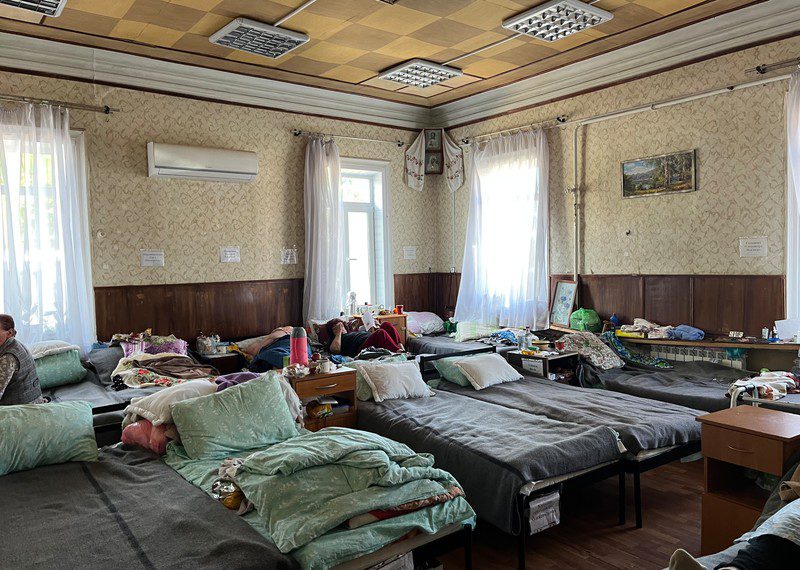
However, nearly all of the shelters visited by Amnesty International were partially or completely inaccessible to people with disabilities: many lacked ramps to enter the buildings, elevators, grab bars to access the toilets or enough space for wheelchair users to turn around completely.
People in wheelchairs came to us, but we couldn’t even accommodate them overnight and had to turn them away.
Director of a youth camp in Kobiahi, Kharkiv Oblast, that was converted into a shelter.
The head of a youth camp in Kobiahi, Kharkiv Oblast, now converted into a shelter, told Amnesty International: “People in wheelchairs came to us, but we couldn’t even accommodate them overnight and had to turn them away. There is no ramp in front of the building.”
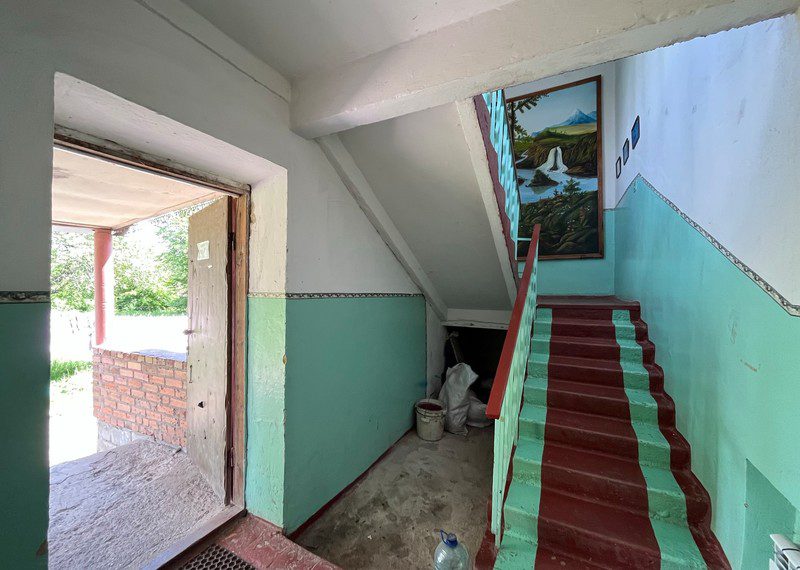
Ukraine is a party to the Convention on the Rights of Persons with Disabilities (CRPD), which requires the Ukrainian government to ensure equal access to the physical environment for persons with disabilities, including during armed conflict. International partners should support Ukraine, including through financial assistance and the provision of materials to make shelters physically accessible.
Amnesty International researchers were repeatedly told that due to a lack of physically accessible shelters, shelter staff felt they had no choice but to send older people with disabilities to their institutions.
Lack of adequate medical and social services
Shrapnel flew into my yard. I lost consciousness… I lost sight in my left eye… Before I walked with one cane, now I need two. Nina Melnichenko, 85, Mykolaiv region
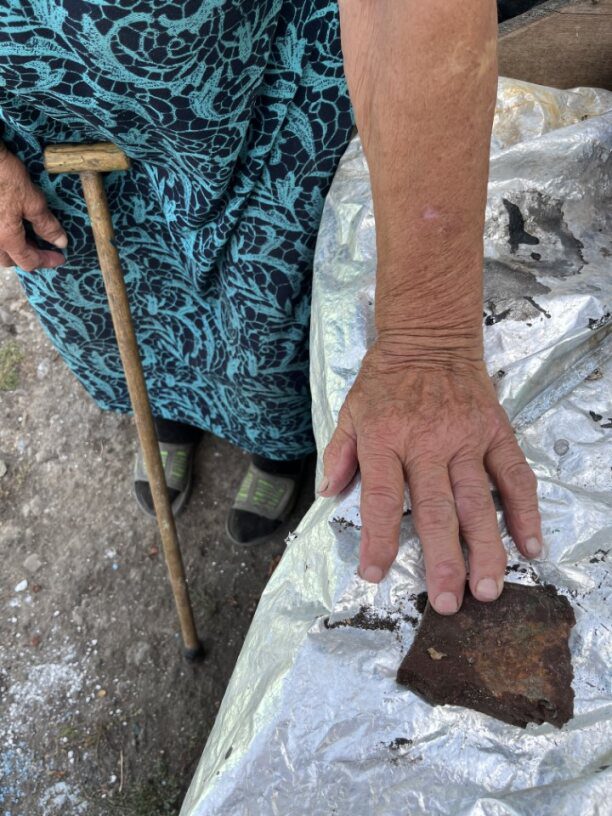
Nina Melnichenko, 85, said she was left with permanent damage from the explosion near her home in the Mykolaiv region: “Shrapnel flew into my yard. I lost consciousness… I can’t see in my left eye… Before I walked with one cane, now I need two.”
Older people with disabilities, including those with conflict-related disabilities, often lack access to disability-related services and health care. The lack of care and support is exacerbated by the fact that many younger relatives who would previously have helped care for older people have fled the country or to other parts of Ukraine, or have joined the military.
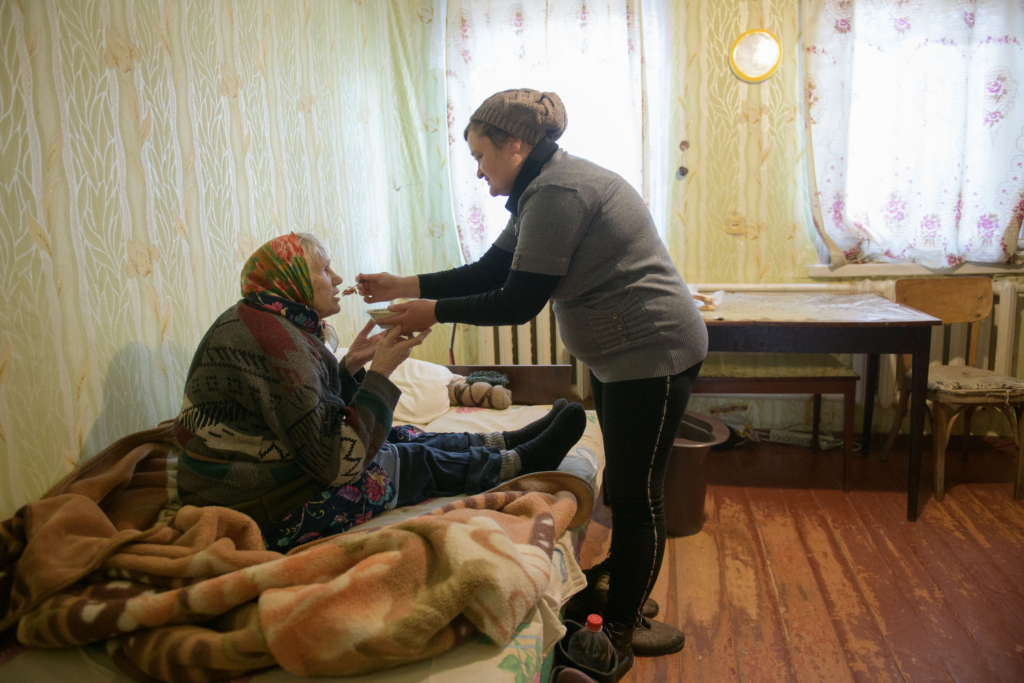
As a result, social workers providing home care are completely overwhelmed and unable to meet the needs or provide adequate support for all the older adults who need help.
The shortage of social workers has led to the placement of elderly people with disabilities in institutions who cannot continue to live at home without specialized support.
“The hardest part is the lack of social interaction.”
Elderly people with disabilities who are placed in institutions are often separated from their relatives living in general evacuation centres. According to the CRPD, confinement of people with disabilities in institutions is a form of segregation, as is prolonged hospitalisation in hospitals, where many of the elderly evacuees live.
Institutionalization can lead to numerous human rights violations, including physical abuse, neglect and adverse effects on the right to health. As one social worker explained, many older people in Ukraine are currently “living in darkness.”
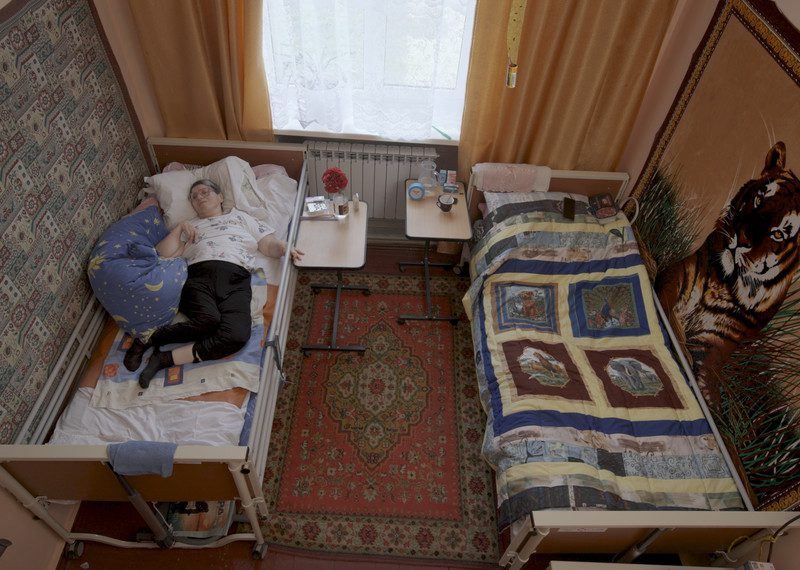
Life lying down is unbearable. The worst part is the lack of social interaction. I have never been a “bedridden” person. I have always been able to use a wheelchair.
Halina Dmitrieva, 52, suffers from cerebral palsy.
Halina Dmitrieva, 52, suffers from cerebral palsy and was unable to use a wheelchair during the months she lived in the institution. “Life lying down is unbearable. The most difficult thing is the lack of social interaction. I am not a ‘bedridden’ person and have always been able to use a wheelchair,” she said.
Older people with dementia or other cognitive impairments appear to be at particular risk of becoming lost within the residential care system after losing contact with relatives during conflict.
An 83-year-old woman with dementia was admitted to a care facility in Odessa after being evacuated but has lost contact with her son. “I don’t know how to find him. I have no way to call him… I have nowhere else to go,” she said.
Many elderly people said they felt lonely after being separated from younger relatives who had fled overseas or migrated to other parts of the country.
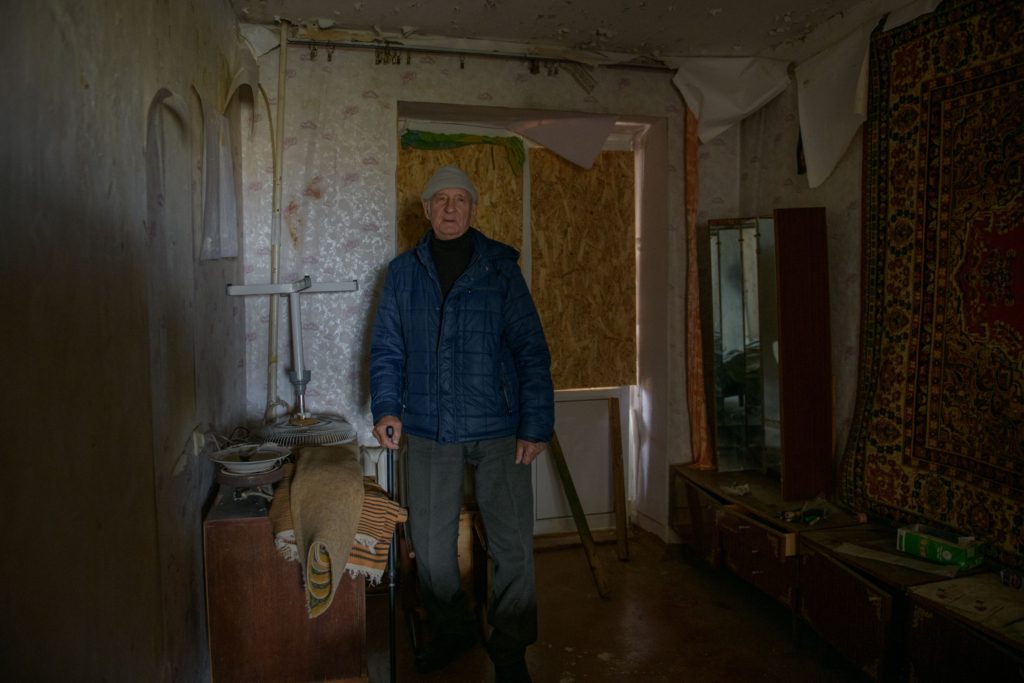
“Foreign donors and humanitarian organisations must provide financial and technical support to ease the burden and build the capacity of social service workers who are bravely putting their lives at risk,” said Laura Mills.
“The costs and logistics of a comprehensive response should not be borne solely by Ukraine, so that all older people can live independently and with dignity in their communities.”
background
Amnesty International commissioned independent Ukrainian filmmaker Marina Chankova to produce a 15-minute documentary film featuring three elderly Ukrainians who were displaced or still live in areas directly affected by the war: “Dreaming in the Shadows,” which can be viewed here.
Amnesty International has documented war crimes and other serious violations of international humanitarian law since Russia’s full-scale invasion of Ukraine began, including in the December 2022 report, “‘There Was Once a Home’: Older People’s Experiences of War, Displacement and Access to Housing in Ukraine.”
For more information about Amnesty International’s work on the rights of older people, visit https://www.amnesty.org/en/what-we-do/older-people/.

